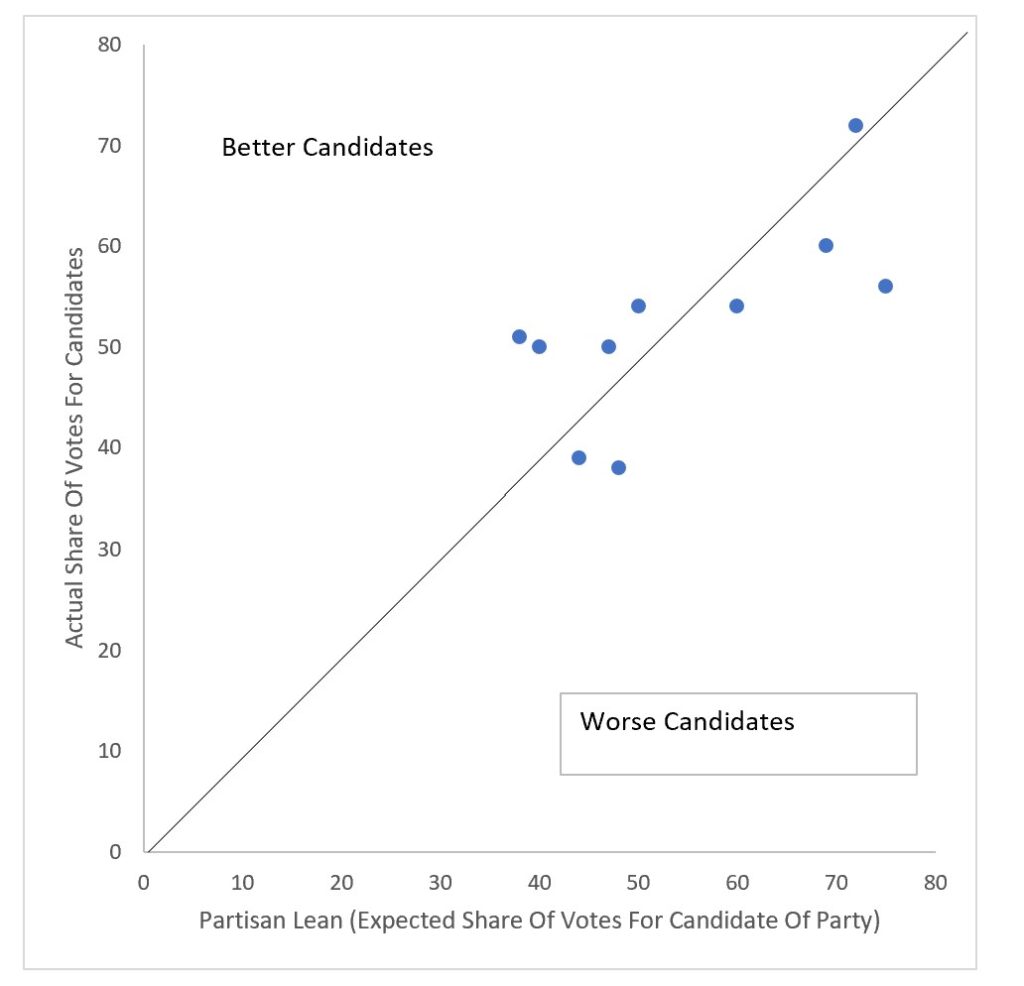Beth Fossen, David Schweidel and Michael Lewis published a paper on political candidate brand strength in Customer Needs and Solutions. They used inspiration from the idea of performance premium measures of brand strength. In essence, these measures consider how a brand should be doing given certain important features. Then they look at how it is really doing. Finally, they ascribe any difference between achievement and expected achievement to the hard to measure brand aspect.
Political Candidate Brand Strength Given You Don’t Have Price
How can you assess brand performance? A first possibility is to use price. (Consumers are willing to pay more for the brand than ‘expected’.) Another possibility is to use revenue. (The brand gains more sales in the stores than ‘expected’). Clearly this isn’t very meaningful in politics. You cannot reliably pay to get your favorite candidate elected. (Or least we hope not). That said you can see how the candidate performs in terms of votes. You can compare this to such things as the partisan lean of their districts. How would a generic candidate have done? This allows the analyst to infer what the politician themselves are bringing compared to how a generic candidate would do.

Brand Strength And Advertising
The authors considered how brand strength links to advertising. For example, do stronger candidates advertise more? Or do they advertise less? To do this they need multiple observations.
“We employ data on U.S. House of Representatives candidates from the 2006, 2008, 2010, and 2012 elections, providing us with up to four elections in which to observe the performance of the candidates. The repeated measures nature of our data allows us to infer candidate-specific, time-invariant effects that reflect the strength of their brands.”
Fossen, Schweidel and Lewis, 2019
The conclusion is that brand strength differs a lot. Candidate quality really does matter.
Strong Candidates Save You Money
Using Republicans as their focus, they find that strong candidates advertise less, as do their opponents.
“…strong Republican brands and the outside organizations supporting them may deem excessive advertising to be unnecessary. Likewise, it can be speculated that Democratic candidates facing strong Republican opponents and outside organizations supporting them might consider advertising a waste given the strength of the opponent and their odds of success.”
Fossen, Schweidel and Lewis, 2019
Having a strong candidate can save you a lot of money in advertising.
For more on political marketing see here. For more on leadership in politics see here, here, and here.
Read: Beth L. Fossen, David A. Schweidel and Michael Lewis (2019), Examining Brand Strength of Political Candidates: a Performance Premium Approach, Customer Needs and Solutions, December 2019, Volume 6, Issue 3–4, pp 63–75
